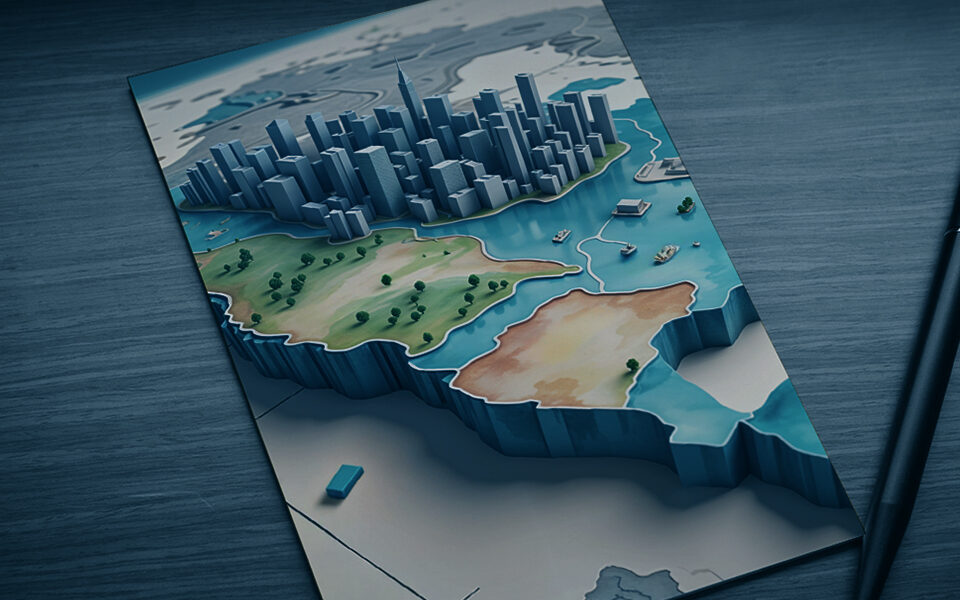
La educación, una responsabilidad de todos
September 10, 2014La internacionalización empresarial
September 17, 2014La independencia de Escocia podría significar el fin de España por Martin Wolf
Lo que pasará el próximo fin de semana es difícil de prever, lo cierto es que va a impactar en el futuro de Inglaterra, España y en el resto de Europa. En el caso de Escocia tenemos, por un lado, a los dos principales bancos que amenazan con dejar el país y, por otro lado, al gobierno Inglés proponiendo lo que nunca había ofrecido a los escoceses. El mundo estará atento a lo que sucederá.
Compartimos con ustedes el artículo completo escrito por Martin Wolf.
Scottish independence could mean the end of Spain: Martin Wolf
On September 18th Scotland will vote on whether or not to leave the United Kingdom and break a union that has lasted over 300 years. While it long seemed as though an independent Scotland was only a pipedream, recent polls have shown that a ‘yes’ vote is actually somewhat likely—the ‘no’ to Scottish independence vote is now winning by only 4% (it was up by as much as 11% on August 25th).
Update: A YouGov poll released overnight Friday showed the independence movement losing a bit of momentum with 52% of respondents saying they’ll vote “no” for independence and 48% saying they’ll vote “yes.” Still, the vote is too close to call and a lot closer than many expected just a few weeks ago.
So what’s the significance of this tiny country (Scotland has only 5.3 million citizens and could fit inside the state of Georgia twice over) potentially leaving the UK?
Martin Wolf, chief economics commentator at the Financial Times and author of “The Shifts and the Shocks,” tells Yahoo Finance that the implications could be disastrous for Scotland, England and the Eurozone at large.
Scotland
In the short-to-medium term, says Wolf, Scotland will find itself in a terrible mess with a seriously damaged economy. Uncertainty will play the key role in this damage and will continue for years. “We don’t know what the final arrangements will be,” says Wolf.
While the Scottish National Party (SNP) has said that Scotland would continue to use the Pound Sterling as its currency and work with the UK in a currency union, UK Prime Minister David Cameron, his deputy Nick Clegg and Labour Party leader Ed Milliband have all nixed the idea of union, dealing Scotland a hard blow. There is of course the euro but it would take at least 18 months for the newly-independent country to join the union and probably much longer to gain approval from all 28 member-countries.
Aside from the question of Scotland’s currency, there’s also the prospect of defaulting on its part of the United Kingdom’s 1.3 trillion pound debt. And in yet another blow, both Lloyd’s and The Royal Bank of Scotland have released statements saying they would move down south (to England) if Scotland were to vote ‘yes’.
Scotland’s aging population (the number of people aged 65 and over is expected to increase 59% by 2037) poses a challenge to economic growth in the coming years, and makes increased government spending likely.
Scotland’s oil business is also somewhat erratic. The oil industry made Scotland 11.5 billion pounds between 2008 and 2009, while the country only made 5.5 billion pounds from black gold between 2012 and 2013.
The United Kingdom
It’s not just Scotland that would be hurt by a Scotish secession, says Wolf. “It will certainly make the UK completely inward looking,” he explains, meaning the country could become isolationist and lose its status as a major international power. The UK would lose over a third of its physical territory and plenty of natural resources (including all of that oil). There have been calls for Prime Minister David Cameron to step down if the independence vote wins.
Independence could also change “in unpredictable ways” the UK’s relationship with the EU, says Wolf.
“Suddenly one of the oldest and most stable democracies in the planet is put into chaos; it’s very surprising and none of us expected this… it’s a new, surprising and very depressing situation,” he explains.
The Eurozone
The implications could go beyond Scotland and the UK and have drastic effects on the eurozone as a whole, particularly Spain.
“The most obvious parallel is with Catalonia,” says Wolf, referring to the autonomous region in Spain that has often protested for recognition as an independent state. Around 55% of Catalans support independence from Spain and the Scotland referendum has fueled new protests throughout Barcelona.
On Thursday, an estimated 1.8 million protesters marched through the streets of Barcelona waving independence flags and wearing yellow-and-red shirts with the phrase “Now is the time” and shouting “Independencia!,” USA Today reports.
The small region of Catalonia brings in around one-fifth of Spain’s $1.4 trillion economy.
“The Spanish, even more than the English, think that Catalan independence is an existential matter for Spain,” Wolf says. “It might begin the unraveling of the whole Spanish state.”
Freedom?
Still, these things aren’t always dependent on economics. Scotland has fought for its freedom for nearly 308 years, and with a national identity that reveres heroes like William Wallace, Robert the Bruce and Bonnie Prince Charlie, a thirst for freedom might outweigh any potential economic burdens.



